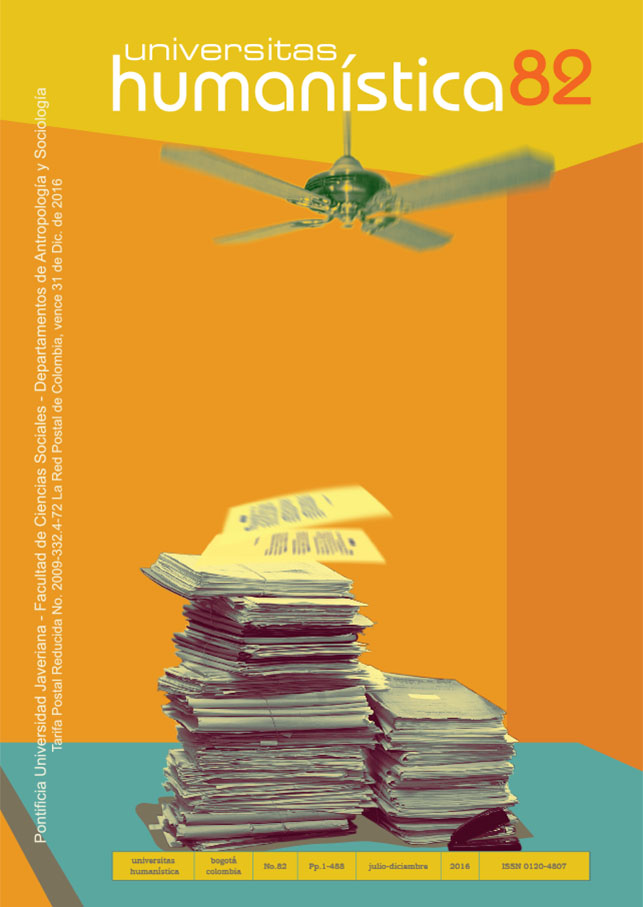Resumo
O artigo apresenta os principais resultados da pesquisa de doutoramento “Configuraçãodas subjetividades na transição para a vida civil de jovens desmobilizados das Forças Armadas Revolucionárias da Colômbia-FARC”, no que diz respeito aos movimentos que se suscitam na identidade, os vínculos e valores de uma turma de jovens desmobilizados das FARC. O desenho metodológico foi orientado a partir das premissas centrais do sócio-construcionismo e seu enfoque foi narrativo. Para o trabalho analítico abordaram-se os modelos arqueológico do relato, de trajetórias e estrutural. Os aportes derivados deste artigo visam, por um lado, abordar os cenários da vida civil desde seu potencial emocional e, por outro, brindar compreensões em torno do processo de reintegração, o papel dos cidadãos, da institucionalidade e tempos de pós-conflito.

A revista Universitas Humanística encontra-se registada sob a licencia Creative Commons Versão 4.0 Internacional. Portanto, esta obra pode se reproduzir, distribuir e comunicar publicamente em formato digital, sempre que dado o crédito apropriado para os autores e a Pontificia Universidad Javeriana. Permite-se citar, adaptar, remixar, transformar, autoarquivar, republicar e criar a partir do material, para qualquer fim, mesmo que comercial, sempre que indicado apropriadamente o nome do criador, provido um link para a obra original e indicado se mudanças foram feitas. A Pontificia Universidad Javeriana não retém os direitos sobre as obras publicadas e os conteúdos são responsabilidade exclusiva dos autores, os quais conservam seus direitos morais, intelectuais, de privacidade e publicidade.
O aval sobre a intervenção da obra (revisão, correção, edição, tradução, formatação) e a subsequente difusão disponibiliza-se através de licença de uso e não através de transmissão de direitos, o que representa que a revista e a Pontificia Universidad Javeriana são isentas de qualquer responsabilidade que puder se derivar de uma prática ética pobre por parte dos autores. Em consequência da proteção fornecida pela licença de uso, a revista não fica na obrigação de publicar retratações ou alterar informações já publicadas, a não ser que a errata seja decorrente do processo de gestão editorial. A publicação de conteúdos nesta revista não representa royalties para os contribuintes.


